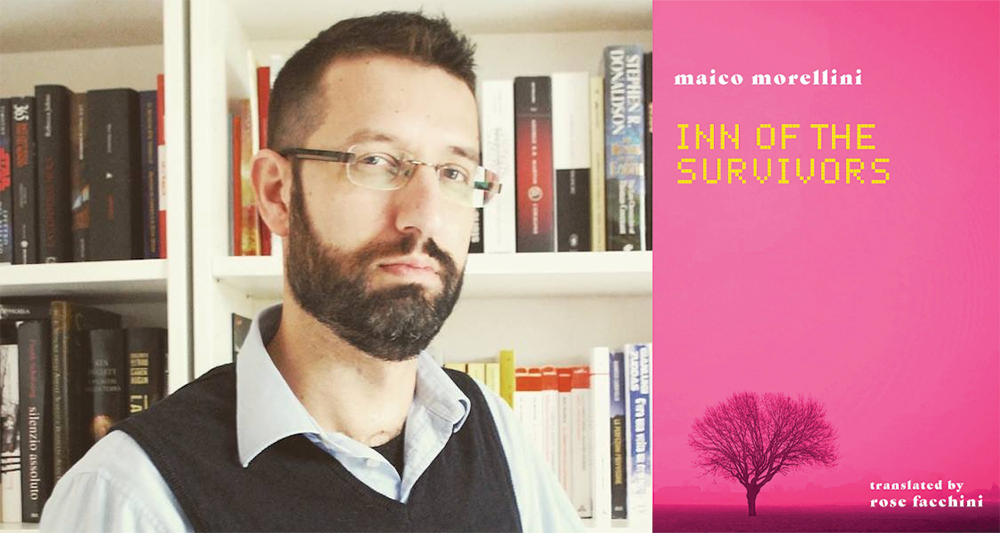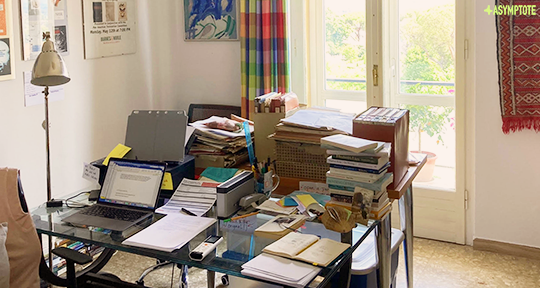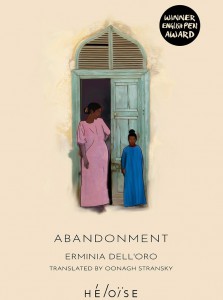Inn of the Survivors by Maico Morellini, translated from the Italian by Rose Facchini, Snuggly Books, 2025
Inn of the Survivors is Italian writer Maico Morellini’s debut in the English language, a haunting and eerily familiar work from a sophisticated voice in speculative fiction, arriving in Rose Facchini’s translation. Set in a dystopian future after an unspecified climate disaster, the novella tells the story of a seventeen-year-old girl’s arrival at the titular Inn of the Survivors, a haven on the Adriatic coast. Having taken off from her remote home in the mountains overlooking the Po River Valley, and following a three-year trek through Bologna, Forlì, and Cesena, she finally reaches the Inn and encounters others like her: people who have been on the run, trying to survive, living with trauma, grief, or shame. The price of staying? You must tell your story.
Lest you think my use of the second person is casual, it should be said that except for the backstory—which appears in the latter half—the novella is written entirely in the second person. While this narrative device appears often enough in English, it is far less common in Italian, with only two novels coming easily to mind: Se una notte d’inverno un viaggiatore by Italo Calvino, and the most recent Strega Prize winner Come d’aria by Ada d’Adamo. This is likely due to the Italian third person impersonal (si + verb), which can mean anything from “you,” to the more formal-sounding “one,” to the most passive of voices. As such, choosing to write this tale in the second person was a bold and effective choice on the part of the author, with the new text sounding entirely natural (the ideal result for a work of cli-fi). Yet, thanks to specific geographic locations that are an integral part of the story and the protagonist’s desire to understand her country, it still retains a quality we can call “Italian.” READ MORE…



